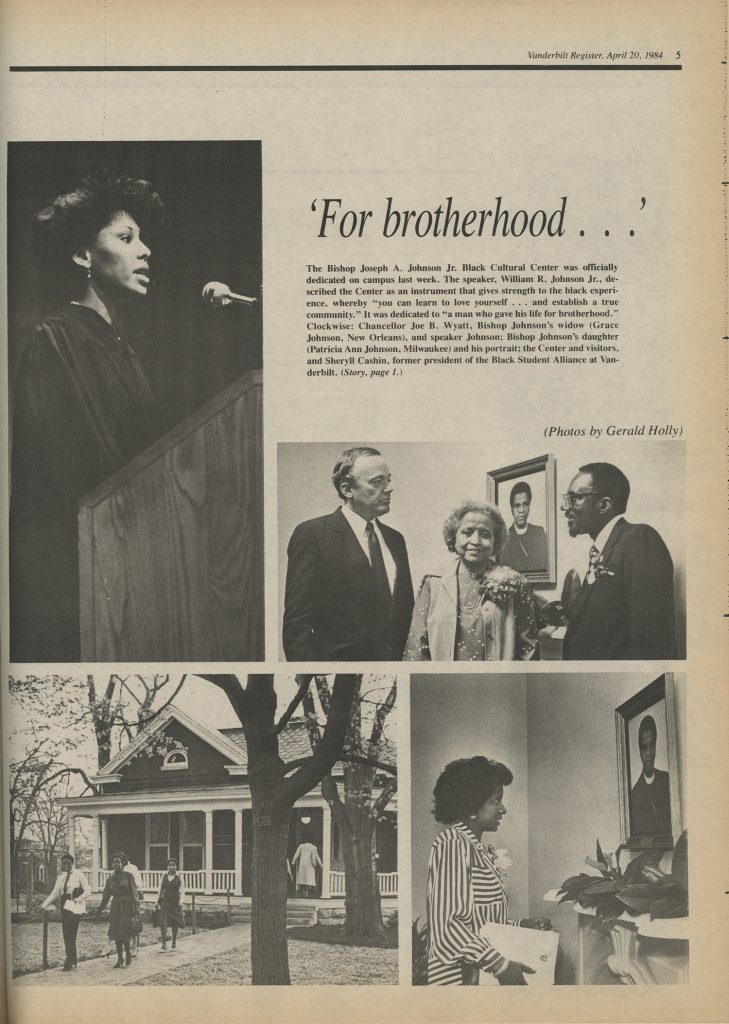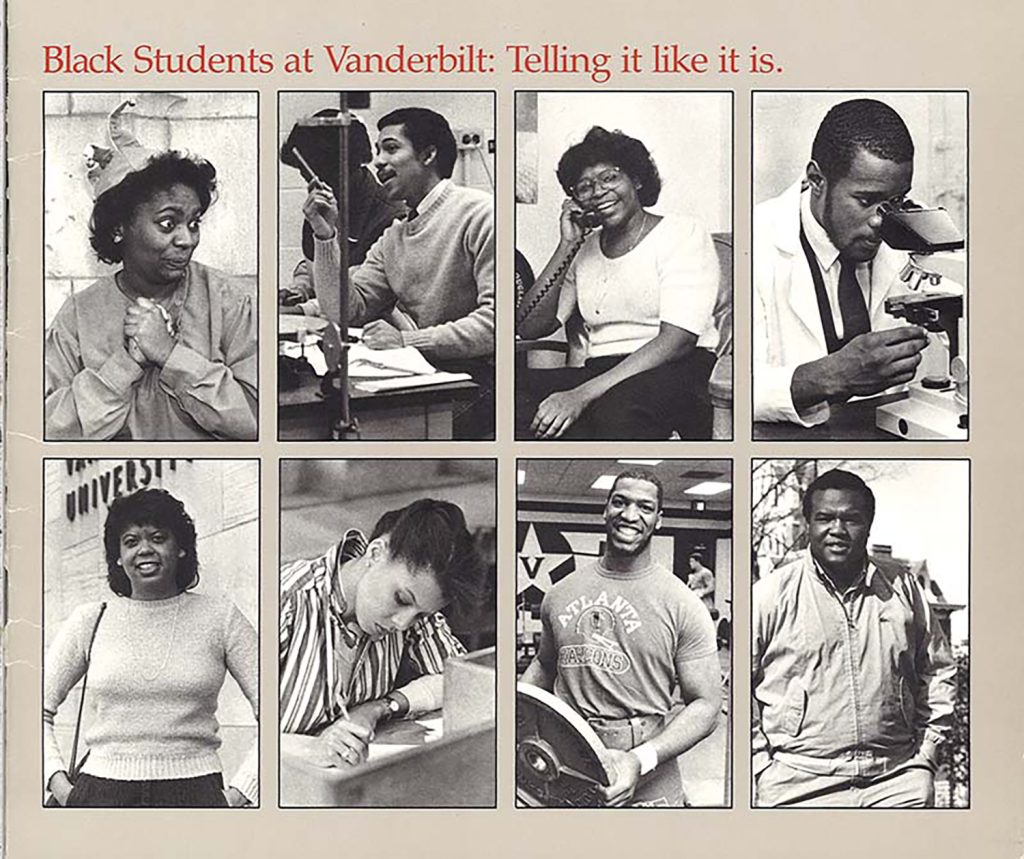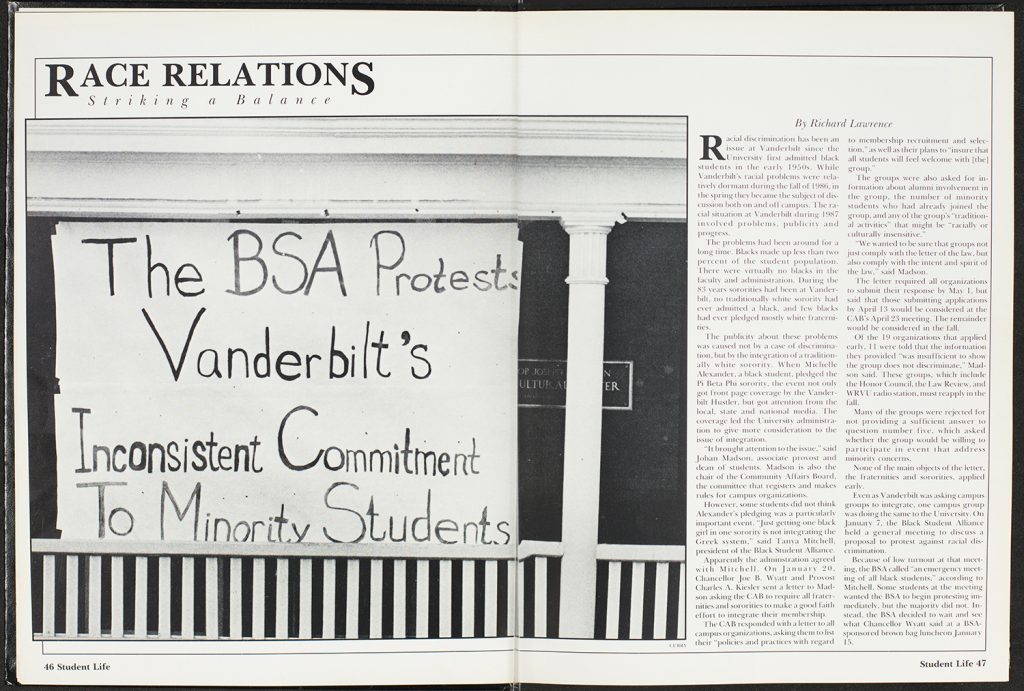Movement(s) (1980-1989)
A Place for Movement(s) (1980-1989)
The Bishop Joseph Johnson Black Cultural Center was dedicated in 1984, named after Vanderbilt’s first African American graduate and second Board of Trust member.
During the late 1980s, African American students organized for more faculty and students of color, increased support for the Afro-American Studies Program, and improvements to Vanderbilt’s racial climate. The Black Student Alliance used “The House” as a focal point for campus actions.

“Joseph Johnson Black Cultural Center Dedicated.” Vanderbilt Register, April 20, 1984. Reproduction. Vanderbilt University Special Collections.
Coverage of the dedication of the Bishop Joseph Johnson Black Cultural Center. Bishop Johnson, the first African American to graduate Vanderbilt, passed away in 1979. His family members are pictured in attendance. “The House” served as a central space for African American student culture, research, and activism during this period. This space continues that legacy today.

Black Students at Vanderbilt: Telling It Like It Is. Office of Undergraduate Admissions, Vanderbilt University, 1984. Subject Files. Vanderbilt University Special Collections.
Profile of African American students during the early 1980s. Includes interviews and information such as hometowns, majors, clubs, teams, and other campus activities. As a recruitment tool used since the early 1970, this 1984 edition strikes a tone of campus inclusion, moving beyond struggles for recognition.

Richard Lawrence. “Striking a Balance.” The Commodore. Vanderbilt University, 1987. Vanderbilt University Special Collections.
The Bishop Joseph Johnson Black Cultural Center (pictured above) has been an intellectual and cultural hub for African American students. It was also a center for student activism, as shown in the 1987 Commodore yearbook. This section entitled “Race Relations” notes protests by African American students for more students and faculty of color, and more African American Greek organizations on campus.
